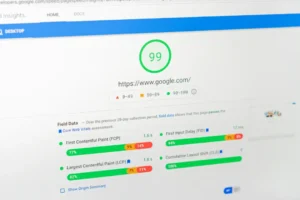
Introduction to Digital Marketing
In the contemporary business landscape, digital marketing has emerged as an indispensable tool for brands and businesses aiming to expand their outreach and enhance their visibility. Digital marketing refers to the use of digital channels, such as social media, search engines, websites, email, and mobile applications, to connect with consumers and promote products or services. This form of marketing is essential for businesses of all sizes, as it allows for targeted campaigns, real-time analytics, and cost-effective strategies while reaching a global audience.
The key components of a successful digital marketing strategy encompass various tactics and channels, including search engine optimization (SEO), content marketing, social media marketing, email marketing, and pay-per-click advertising. Each of these components plays a vital role in delivering a comprehensive approach to engaging with consumers and driving traffic to online platforms. For instance, SEO focuses on improving a website’s visibility in search engine results, while content marketing aims to provide valuable information that resonates with target audiences, establishing authority and trust.
A strategic approach to digital marketing is pivotal, as it aligns marketing efforts with business objectives, ensuring that resources are utilized effectively to achieve tangible results. Without a well-defined digital marketing strategy, businesses may struggle to maintain a competitive edge in a rapidly evolving market. This guide aims to provide readers with valuable insights into the nuances of digital marketing, offering practical advice and actionable steps for both novices and experienced marketers. Throughout the guide, readers will learn about the integral aspects of digital marketing and how to tailor their strategies to meet specific goals and drive growth.
Understanding Your Target Audience
Defining your target audience is a crucial element when crafting a successful digital marketing strategy. By understanding who your customers are, you can tailor your marketing efforts to effectively meet their needs and preferences. This foundational knowledge serves as the bedrock upon which all subsequent marketing initiatives are built.
To begin, conducting thorough market research is essential. This process involves gathering data about potential customers, including demographics, interests, and behaviors. Various tools and techniques can be employed, including surveys, focus groups, and analysis of social media engagement. These insights provide a clear picture of your audience, helping to shape your digital marketing for beginners and more advanced strategies.
Another effective method is the development of customer personas. These fictional representations of your ideal customers are based on empirical data and help bring clarity to your marketing messages. Creating detailed personas involves identifying specific traits, such as age, location, purchasing habits, and motivations. This exercise not only aids in segmenting your audience but also ensures that your digital marketing strategy resonates deeply with the consumers you aim to reach.
Moreover, understanding consumer behavior is key in the realm of digital marketing. Analyzing how potential customers interact with various platforms allows for more precise targeting and engagement tactics. Utilizing analytics tools to track user behavior on your website, social media channels, and email campaigns can shed light on the effectiveness of your current strategies and highlight areas for improvement.
In summary, a deep understanding of your target audience will enable you to develop a digital marketing strategy that is both effective and engaging. By utilizing market research, building customer personas, and analyzing consumer behavior, you position your business for success in the ever-evolving digital landscape.
Setting SMART Goals
In the realm of digital marketing, the establishment of clear and measurable goals is crucial for guiding the overall digital marketing strategy. One widely recognized framework for effective goal setting is SMART, which stands for Specific, Measurable, Achievable, Relevant, and Time-bound. Each component plays a vital role in ensuring that marketing objectives are both actionable and aligned with broader business aims.
First, specific goals clarify what is to be achieved. For instance, rather than stating a goal like “increase website traffic,” a specific goal would be “increase website traffic by 20% within six months.” This specificity allows marketers to direct their efforts strategically and stay focused on the desired outcome.
The second criterion, measurable, emphasizes the importance of tracking progress. By using quantitative data, such as website analytics and conversion rates, marketers can determine if they are on track to meet their goals. For example, setting a target to “gain 500 new email subscribers each month” provides a clear metric for measuring success.
Achievable goals ensure that the objectives set are realistic given the available resources and constraints. Aiming for a 50% increase in sales within one week may be ambitious; therefore, it may be more useful to set a goal like “increase sales by 10% over the next quarter,” which is a more attainable expectation.
The relevance of a goal aligns it with overall business objectives. Goals should support the larger vision and mission of the organization. A relevant digital marketing goal might focus on improving brand awareness through social media, in line with a company’s strategy to enhance its market presence.
Finally, time-bound goals provide a framework for achieving objectives within a set period. Incorporating deadlines fosters urgency and accountability. For example, a goal to “launch a new email marketing campaign by the end of Q2” can motivate teams to prioritize their tasks effectively.
By employing the SMART criteria, businesses can create robust digital marketing goals that not only foster clarity but also drive performance in their digital marketing strategy.
Choosing the Right Marketing Channels
In the evolving landscape of digital marketing, selecting the appropriate marketing channels is critical for the success of any digital marketing strategy. Multiple channels are available, each with its unique strengths and weaknesses, which cater to different audience segments and marketing goals. Social media platforms, for example, are known for their ability to foster engagement and build community. They allow brands to interact directly with consumers, making them ideal for campaigns focused on brand awareness and customer loyalty.
On the other hand, email marketing remains one of the most cost-effective channels for delivering personalized content directly to a targeted audience. With a proper segmentation strategy, businesses can tailor their messaging to meet the specific needs of their customers, increasing conversion rates effectively. However, the potential for emails to end up in spam folders or go unopened means that this method requires careful execution and continual testing to see optimal results.
Search Engine Optimization (SEO) plays a vital role in increasing organic reach and visibility. By optimizing online content for search engines, businesses can attract potential customers who are actively searching for solutions. However, SEO requires sustained effort and time to see tangible results, making it a long-term strategy rather than an immediate solution.
Pay-Per-Click (PPC) advertising is another channel that can bring about quick results. By targeting specific keywords, businesses can reach their audience instantly. While this mechanism can drive immediate traffic, it often necessitates a significant budget, thereby requiring careful consideration of return on investment (ROI).
Lastly, content marketing is essential for building brand authority and trust. By consistently delivering valuable content, businesses can engage their audience and drive organic traffic. However, the effectiveness of this channel relies heavily on the quality and relevance of the content produced.
Ultimately, a multi-channel approach that integrates various digital marketing channels can yield the best results. By understanding the strengths and limitations of each channel, marketers can develop a digital marketing strategy that aligns with their specific objectives and resonates with their target audience.
Developing Your Content Strategy
In the realm of digital marketing, content serves as the cornerstone for achieving effective engagement with target audiences. The development of a robust content strategy is crucial for any digital marketing initiative, particularly for beginners entering the space. A well-crafted content strategy not only resonates with audiences but also aligns with overarching marketing goals, ultimately driving conversion rates and brand loyalty.
To begin, it is essential to identify the various content types that can be leveraged within a digital marketing strategy. Blogs, for instance, are a versatile means of conveying information and enhancing search engine optimization (SEO). Videos, on the other hand, provide a dynamic format that can capture attention quickly, appealing particularly to visual learners. Infographics can distill complex data into easily digestible information, making them ideal for sharing across social media platforms. By incorporating a mix of these content types, marketers can create a multifaceted approach that caters to different preferences and learning styles among their audience.
Once the content types are determined, the next step involves strategic content planning. This includes outlining a content calendar that details when and where to publish each piece. A well-organized calendar not only ensures regular updates but also allows for timely promotion of important events or campaigns. Additionally, consider the integration of storytelling as a core element of your content strategy. Effective storytelling captivates potential customers and enhances their emotional connection to the brand. By weaving narratives around products or services, marketers can create memorable experiences that encourage engagement and retention.
In conclusion, developing a comprehensive content strategy is essential for digital marketing success. By understanding the importance of diverse content types, effective planning, and the art of storytelling, marketers can create engaging content that resonates with audiences and supports their digital marketing efforts.
Budget Allocation for Digital Marketing
Budget allocation is a vital aspect of formulating a successful digital marketing strategy. Properly distributing financial resources across various channels can significantly impact the overall return on investment (ROI). Digital marketing encompasses an array of channels, including social media, search engine marketing, content marketing, email campaigns, and more. Understanding how to effectively allocate a marketing budget among these channels is essential for both established businesses and those entering the digital realm for the first time.
To begin, organizations should adopt a budgeting framework based on their specific objectives. This framework can involve analyzing the historical performance of different channels and assessing what has delivered the highest ROI in previous campaigns. Established brands might focus on maintaining or increasing their existing budget for channels with proven effectiveness, while startups or businesses new to digital marketing for beginners may allocate initial resources toward learning and testing various methods before committing to larger budgets.
Additionally, competition within the industry plays a critical role in budget allocation. A thorough understanding of the competitive landscape allows businesses to make informed decisions about where to invest. For example, if competitors are heavily investing in search engine optimization (SEO), matching or exceeding that investment may be essential to remain competitive. Conversely, there may also be opportunities in less saturated channels.
Monitoring and constantly adjusting budget allocations is another crucial factor in refining a digital marketing strategy. Regular analysis of performance metrics, such as conversion rates and customer engagement, can help identify which channels require increased funding and which ones may need a reduction. By maintaining a flexible approach and regularly reviewing results, businesses can ensure that their digital marketing budget remains aligned with their overarching goals and the evolving market dynamics.
Measuring Success and Analytics
In the realm of digital marketing, the ability to track and measure performance is crucial for assessing the effectiveness of various strategies. This measurement not only allows marketers to understand how well their initiatives are performing but also to identify areas that require improvement. Employing analytics enables businesses to gather invaluable insights into consumer behavior, campaign performance, and overall return on investment (ROI).
One of the most widely used tools for monitoring digital marketing efforts is Google Analytics. This platform empowers marketers to analyze website traffic, user engagement, and conversion rates. By setting up specific goals, businesses can track which digital marketing strategies are most effective in driving desired actions, such as purchases or sign-ups. Other key metrics to consider include click-through rates (CTR), bounce rates, and customer acquisition costs, all of which provide essential data for evaluating performance.
Interpreting data correctly is critical for blending insights into a coherent digital marketing strategy. Marketers need to understand what the numbers imply about their campaigns. For instance, a high bounce rate might indicate that the landing pages are not resonating with the targeted audience, while a low click-through rate could suggest ineffective ad messaging. Thus, continuous evaluation is essential; by regularly analyzing the available data, marketers can refine their digital marketing for beginners and seasoned professionals alike. Effective decision-making based on these insights can guide future campaigns, ensuring that each new initiative builds upon lessons learned from past performance.
In conclusion, tracking and analyzing digital marketing efforts is vital for creating a robust strategy. By utilizing tools like Google Analytics and interpreting metrics effectively, businesses can optimize their campaigns, enhance user engagement, and ultimately achieve greater success in their digital marketing endeavors.
Adjusting Your Strategy Based on Performance
In the ever-evolving landscape of digital marketing, the necessity for an adaptive and flexible approach cannot be overstated. Crafting a digital marketing strategy involves continuous monitoring and assessment to ensure its effectiveness. The iterative nature of digital marketing highlights the importance of adjusting your strategy based on performance metrics and other relevant feedback. By leveraging data-driven insights, marketers can refine their efforts to achieve better results.
One effective method for adjusting your digital marketing strategy is through A/B testing. This technique involves comparing two versions of a marketing element—such as an email subject line, landing page design, or advertisement—to determine which performs better. This not only aids in optimizing campaign elements but also provides valuable insights into customer preferences and behaviors. By employing A/B testing regularly, marketers can make informed adjustments that enhance overall campaign effectiveness.
In addition to A/B testing, actively seeking customer feedback plays a crucial role in the refinement of your digital marketing strategy. Surveying customers about their experiences or conducting focus groups can reveal valuable insights into their perceptions and expectations. Understanding these elements allows marketers to adjust content, messaging, and channels used, ensuring they resonate better with the target audience.
Moreover, staying attuned to market trends is vital for maintaining a competitive edge. Regularly analyzing industry developments enables marketers to pivot their strategies as new challenges and opportunities arise. By integrating these insights along with performance data, businesses can cultivate a digital marketing strategy that is not only effective but also agile and responsive to external changes.
In conclusion, adjusting your digital marketing strategy based on performance is paramount for sustained success. Embracing A/B testing, customer feedback, and market trends will provide the necessary framework to consistently refine and elevate your marketing efforts.
Conclusion and Next Steps
In today’s increasingly digital world, a structured digital marketing strategy is essential for businesses looking to succeed. The key takeaways from this guide highlight the critical elements of crafting an effective digital marketing strategy, including the importance of understanding your target audience, setting clear objectives, and continuously measuring results. An effective strategy is not merely about implementing techniques but rather integrating various components to create synergy and drive impactful results.
For beginners in the realm of digital marketing, it can be overwhelming to navigate through the multitude of channels and tactics available. However, a systematic approach can greatly simplify this process. Start by identifying your goals, be it increasing brand awareness, generating leads, or boosting sales. Understanding your audience’s preferences will guide the direction of your digital marketing efforts, enabling you to deliver tailored content that resonates with them.
Once you have a foundation established, consider leveraging various tools and resources to enhance your digital marketing efforts. There are numerous platforms, such as Google Analytics for tracking website performance, social media management tools for scheduling posts, and email marketing software for engaging your audience effectively. Familiarizing yourself with these resources will provide you with a more robust understanding of digital marketing for beginners.
Moreover, continued learning and adaptation are imperative in the digital landscape. Follow relevant blogs, participate in forums, and consider enrolling in online courses that delve deeper into specific aspects of digital marketing strategy. By doing so, you will not only stay updated with the latest trends and tools but also empower yourself to implement effective strategies consistently.
In conclusion, crafting a successful digital marketing strategy is an ongoing process that requires diligence and adaptability. The insights shared in this guide serve as a valuable foundation, and with the right mindset and resources, anyone can embark on a successful journey in digital marketing.









